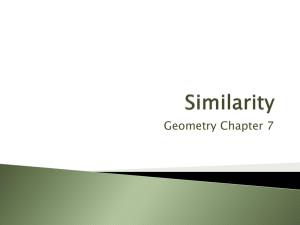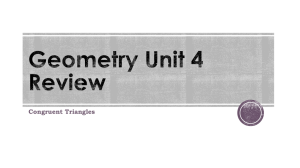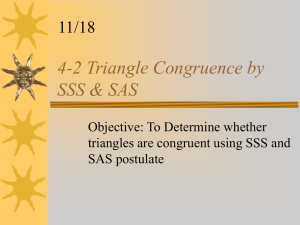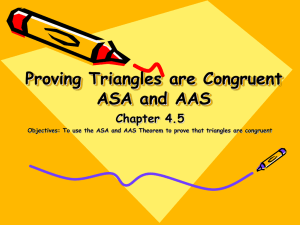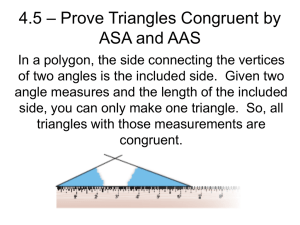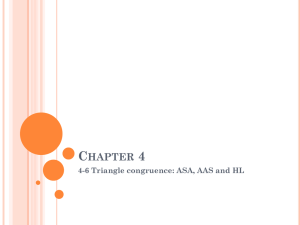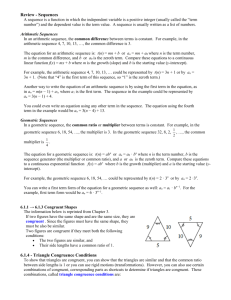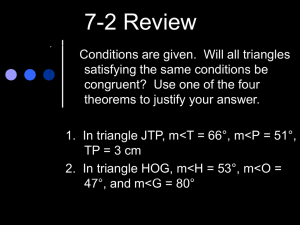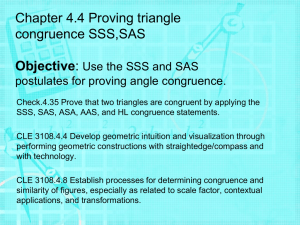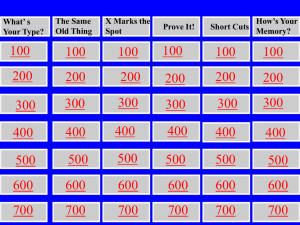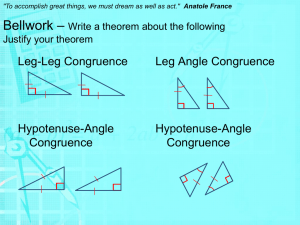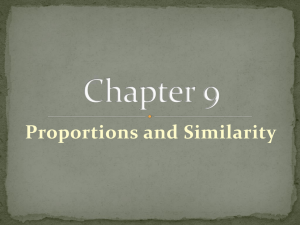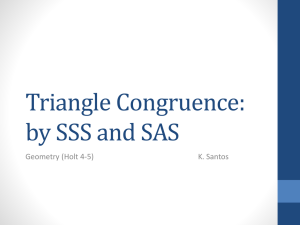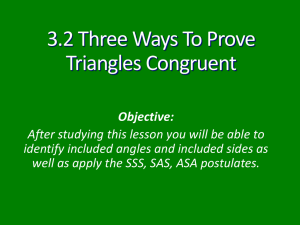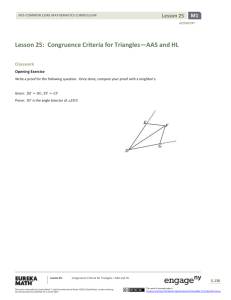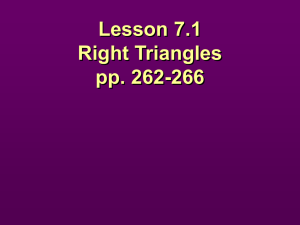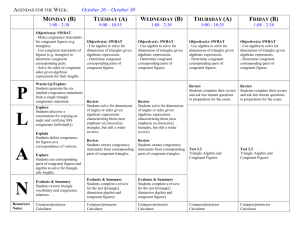Honors Geometry Section 4.3 AAS / RHL
advertisement
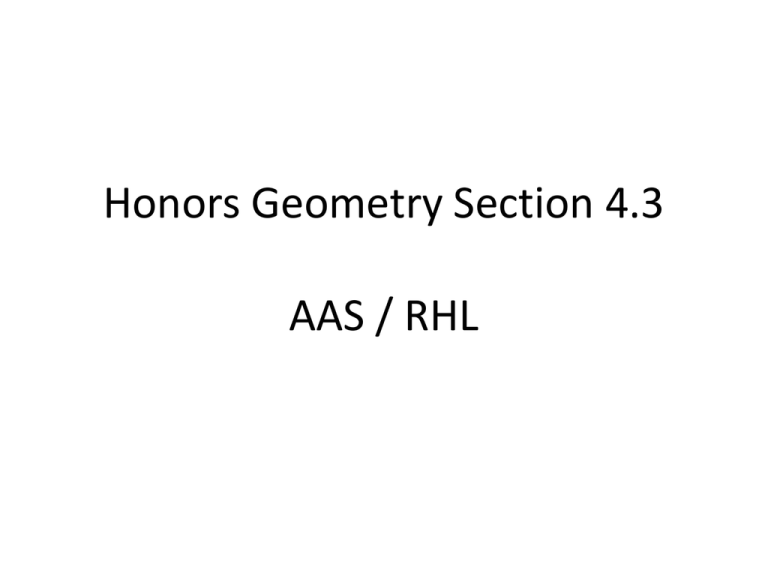
Honors Geometry Section 4.3 AAS / RHL In the last section we learned of three triangle congruence postulates: SSS SAS ASA Let’s look at some other possibilities. A counterexample demonstrates that AAA is not a valid test for congruence. Consider two equiangular triangles. What is true about the angles in each triangle? They are all 60 degrees. Are the triangles shown congruent? No 50 50 If we know the measures of two angles in a triangle, we will always be able to find the measure of the third angle. So, any time we have the AAS combination, we can change it into the ASA combination and the two triangles will then be congruent. Theorem 4.3.1 AAS (Angle-Angle-Side) Congruence Theorem If two angles and the non-included side of one triangle are congruent to the corresponding parts of another triangle, then the triangles are congruent. Note: While ASA can be used anytime AAS can be used and viceversa, they are different. The congruence markings on your triangles and the steps in your proof must agree with the congruence postulate/theorem you use. Example: Are the triangles congruent, and if so, why? AAS ASA As discussed in the last class, SSA is not a valid test for triangle congruence. There is, however, a special case of SSA that is a valid test for triangle congruence. Theorem 4.3.2 RHL (Right-HypotenuseLeg) Congruence Theorem If the hypotenuse and a leg of one right triangle are congruent to the hypotenuse and a leg of a second right triangle, then the two triangles are congruent. NOTE: In a right triangle, the legs are the two sides that form the right angle and the hypotenuse is the side opposite the right angle. Example 3: Name the congruent triangles and give the reason for their congruence. None is a possible answer. AAS or ASA RHL CAL CAF NONE KEN FEI
